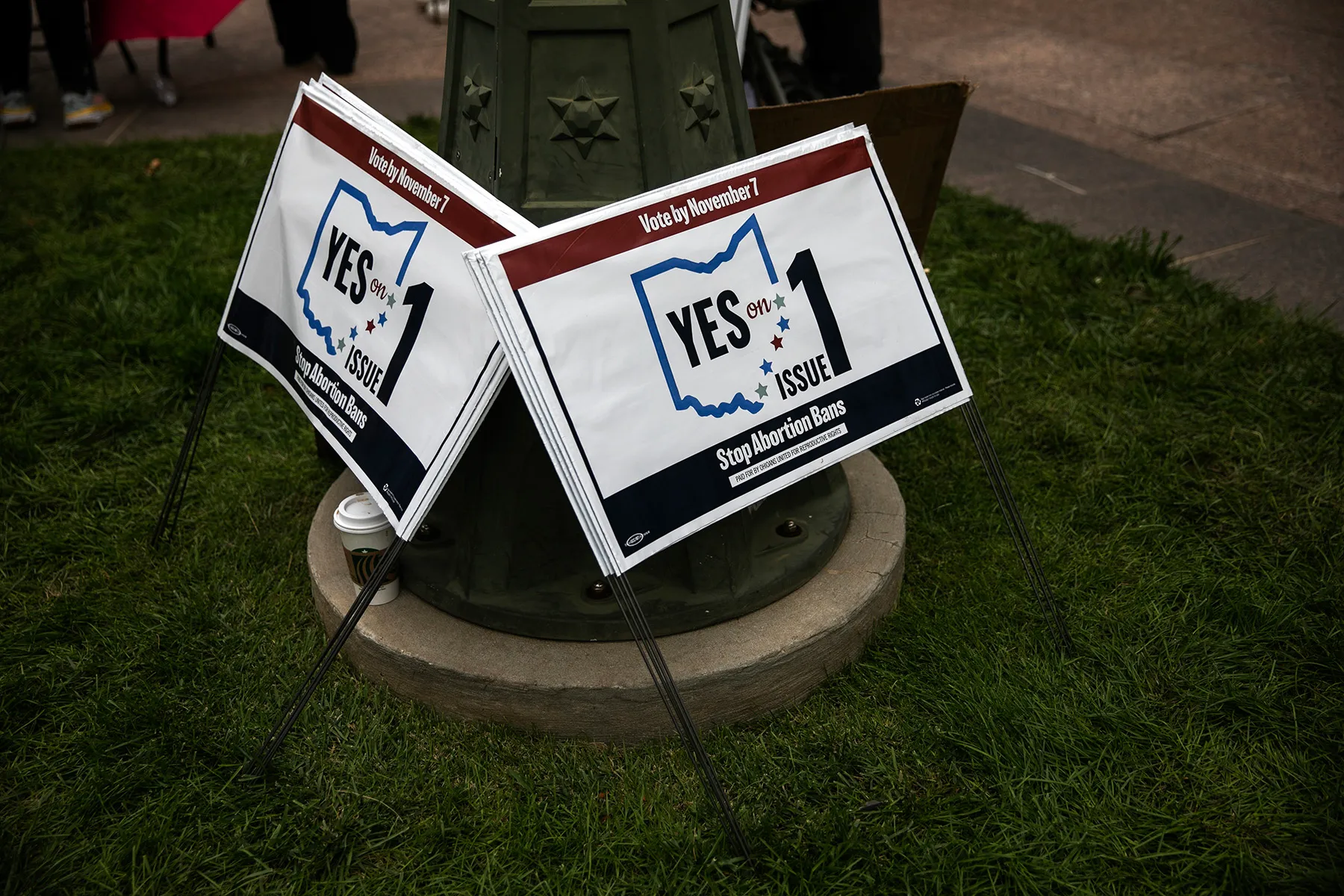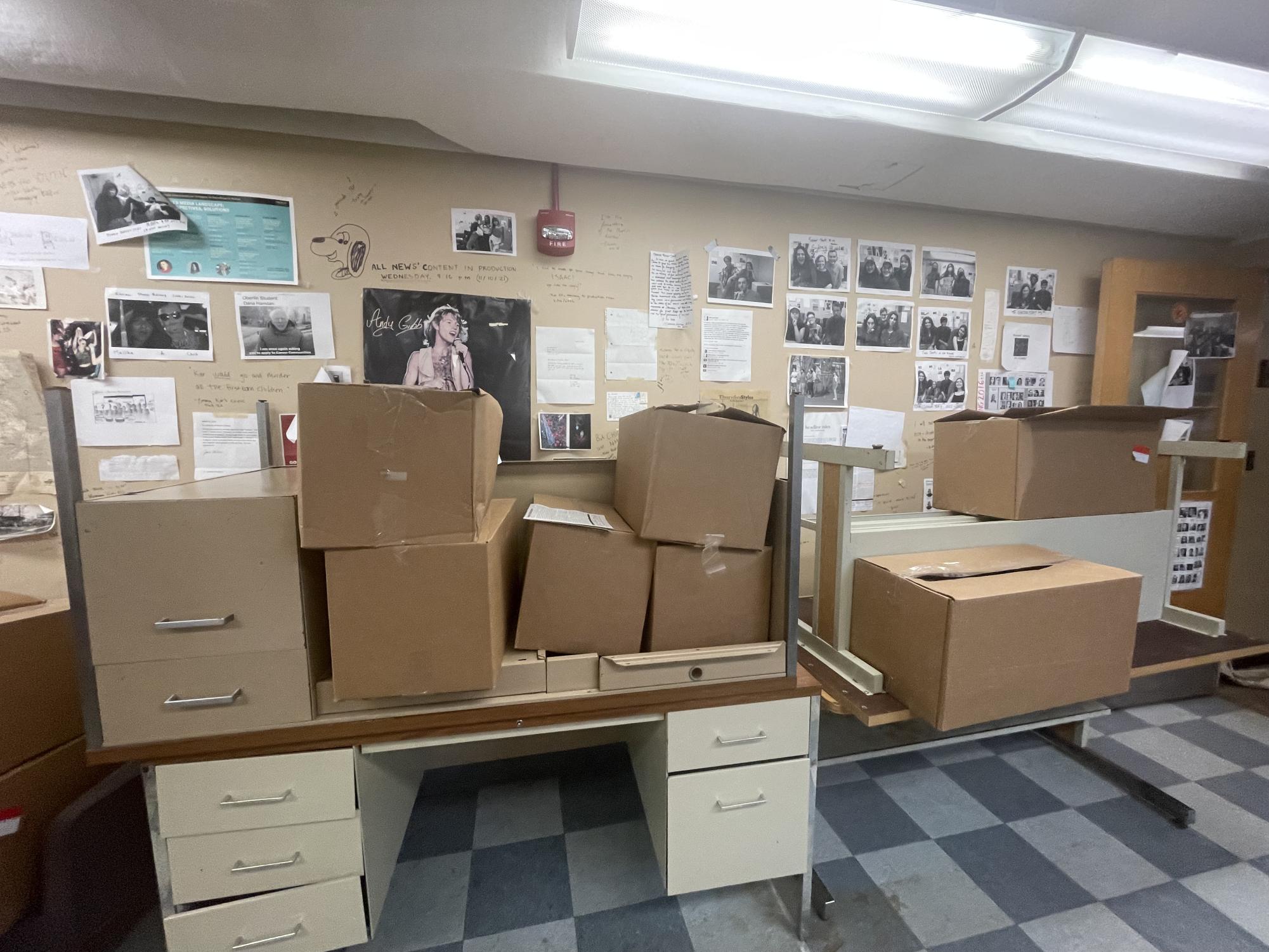Grieving Students Need Support
On Jan. 18, College first-year Helen Hastings was killed in Texas in a gun accident. Hastings’ friends — many of whom were first-years themselves — were left to cope with their loss entirely on their own, working to keep up with schoolwork while processing the tragedy.
“The school did nothing to attempt to memorialize her, they organized nothing for us, and forced us to fight for our right to mourn,” Elizabeth Hawk, College second-year and one of Hastings’ friends, wrote in an Opinions piece in April. “The email we got about Helen’s death included one singular link to the Counseling Center. Nothing else.”
Helen was not the first student to die during that academic year. On Aug. 29, 2020, College fourth-year Aiden Day passed away from acute myeloid leukemia. Day was a well-known lacrosse player and Politics major, and a vital part of the Oberlin community. After his death, the College failed to send so much as an email to the campus community or reach out to Aiden’s younger sister, College fourth-year Aniella Day.
The College doesn’t have the best track record in supporting student mental health. In 2019, there was a staffing shortage in the Counseling Center, resulting in overbooking and extended wait times for therapy appointments. In 2020, state health laws and the College’s three-semester plan made it difficult for students to access the College’s resources, particularly if they were out of state at any time. The acute shortage of resources, paired with the unique challenges of the COVID-19 pandemic, left students ill-equipped to deal with everything thrown their way.
Three years ago, in an attempt to bolster the institution’s available mental health services, the College partnered with the JED Campus program to update Oberlin’s mental health services. The JED process reviewed campus resources and surveyed over 800 students, culminating in a report with dozens of action items to improve mental health services. JED found that Oberlin students self-reported nearly double the national average of suicidal ideation, and that the College had “critical issues with student mental health support,” according to students working on the project. Yet even with these alarming findings, Oberlin steadily fell behind on JED’s four-year implementation schedule, and the project has been struggling to get back on track following the departure of several Student Life deans this past spring. The College is aware of the glaring gap in its mental health services, but it has been unable to dedicate the necessary time and effort to fix the problem. During this national moment of grief, when supporting members of our community is more crucial than ever, it’s evident that the College’s leisurely pace on the JED project may have serious consequences.
Most of the College’s resources don’t have the bandwidth to support grieving students. Instead, students have been left trying to create spaces to grieve and honor their losses, and sometimes they have even encountered pushback from the College. College second-years Lulu Chebaro and Imani Joseph wrote a letter detailing the hurdles they faced from the administration organizing a vigil honoring Duante Wright. In the spring, a group of first-years found themselves in a heated debate with College faculty after the students wanted a Tappan rock commemorating Hastings to be left unaltered, and professors claimed that this was disrespectful to the broader community. This disagreement sparked weeks of student efforts to create a more permanent memorial for Hastings, until the College finally decided to plant a tree outside Burton Hall in honor of Hastings.
“I want her to be remembered,” Hastings’ friend and College second-year Ros Kish-Levine recently told the Review. “I don’t want her to not be talked about. I don’t want the College to pretend that their students don’t die sometimes.”
In the last two years, COVID-19 has changed the way we experience grief, in part due to the sheer number of people grieving. Current estimates suggest that at least five million Americans have lost someone close, and millions of others — no doubt including Obies — have waited anxiously for someone’s recovery. Grieving students need support. When the College becomes aware that a student is grieving, it needs to reach out to them directly.
The inevitable consequence of a systemic lack of support is a feeling of isolation even amid a campus teeming with life. It is difficult enough to hear pleas for support bounce off an unbothered administration, but the fact that many students aren’t equipped or educated to talk about grief means that the conversation is actively avoided. It can be a lonely experience. This is especially true in the case of grieving first-years, many of whom are away from home for the first time and are still building a network of support in Oberlin. The College can and should expand preexisting resources like the Peer Listening Center. Investments can be made in the Student Help and Resource Exchange or other programs that reach out directly to students. The JED proposals are long overdue in being implemented and are the bare minimum at a time like this.
Because of the lack of resources that she experienced firsthand, Aniella is working with Assistant Dean of Students Monique Burgdorf to create a Barefoot Dialogue group specifically for students who are grieving. The College can support student-directed initiatives like this as well as conduct their own.
Finally, students and administrators alike can work to cultivate a culture where our campus does not shy away from talking about grief. Grief is most isolating when people dance around the subject, preserving their own comfort and leaving mourners to experience their loss alone. Check in with your friends. Check in on your students. Make every deliberate effort you can to find, support, and guide hurting students through their grief.




